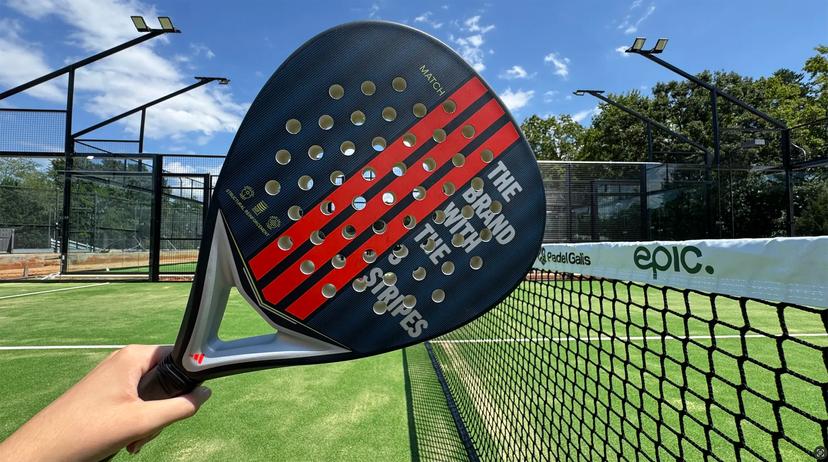Padel is rapidly growing in popularity worldwide—and the United States is no exception. As more people discover this dynamic and social sport, understanding the padel rules becomes essential. Whether you're a newcomer stepping onto the court for the first time or a seasoned player aiming to refine your gameplay, mastering the rules can significantly elevate your padel experience.
In this comprehensive guide, we’ll walk you through all the essential padel rules—from court layout and scoring to serving regulations and gameplay etiquette. By the end, you'll be fully equipped to participate in a match with confidence.
Interested in joining a premium padel community? Discover our exclusive Epic Padel Memberships and elevate your game with access to world-class courts, coaching, and events.
What Is Padel?
Padel is a racquet sport that combines elements of tennis and squash. It’s played in doubles on an enclosed court about one-third the size of a tennis court. Unlike traditional tennis, the walls are used as part of the game, which adds a unique twist to the dynamics.
The sport is particularly known for its social appeal, making it accessible to beginners while remaining challenging for experienced players.
Basic Court Layout
Before diving into the rules, it's essential to understand the court structure:
- Dimensions: 10 meters wide and 20 meters long
- Net height: 88 cm at the center
- Walls: Glass or mesh used as rebound surfaces
- Divided: By a net, like in tennis, but with surrounding walls similar to squash
Understanding the court layout helps in interpreting the rules and planning strategies effectively.
Essential Padel Rules
Below are the most important padel rules you need to know:
1. Scoring System
Padel uses the same scoring system as tennis:
- 0 (love), 15, 30, 40, game
- If both teams reach 40, it's called "deuce"
- The next point is "advantage". Winning two consecutive points from deuce wins the game
- Matches are usually played in best of 3 sets
- A set is won by the team that wins 6 games with at least a 2-game margin
2. Serving Rules
Serving in padel has some unique characteristics:
- The server must stand behind the service line and serve diagonally into the opponent's service box
- The ball must be bounced once before being hit
- The ball must be hit below waist level
- The ball must bounce in the opponent's box before touching the glass walls
- You get two chances to make a legal serve (similar to tennis)
Important: If the ball touches the net and still lands in the correct box without hitting the side fence, it's called a "let" and must be re-served.
3. Return of Serve
The receiving team must wait until the ball bounces once before returning it. However, once the rally begins, players can:
- Return the ball volley (without a bounce)
- Use the walls for rebounds
- Let the ball bounce off the glass wall and then return it (not the metal fence)
4. Ball In Play
Once the serve is successfully returned, the ball is in play and the rally begins. Key rules:
- The ball must land within the opponent’s court
- The ball can bounce off the glass walls
- If the ball hits the fence before bouncing, it’s considered out
- Players may exit the court to retrieve the ball (in some courts with external exits)
5. Faults and Out Balls
A point is lost if:
- The ball bounces twice on your side
- The ball hits the fence directly before bouncing
- The ball is struck into the net
- The ball is hit out of the enclosure
- Players touch the net or cross the opponent’s side
6. Let Points
Certain situations result in a let, and the point is replayed:
- The serve hits the net and lands legally
- If a ball from another court enters play
- Any external interference (e.g., object on court)
7. Unique Padel Rules vs. Tennis
While padel shares similarities with tennis, the key differences include:
Aspect
Tennis
Padel
Court Size
Larger
Smaller and enclosed
Serve
Overhand allowed
Underhand only
Walls
Not used
Part of gameplay
Equipment
Strung racket
Solid paddle
Players
Singles or doubles
Doubles only (officially)
Padel Rules for Beginners
If you're just getting started, here are a few simplified padel rules to help:
- Always let the ball bounce once before hitting on serve returns
- Don’t hit the fence directly with your shot
- Learn to use the glass walls strategically
- Serve underhand and don’t rush it—accuracy matters
- Play with a partner and focus on positioning and communication
These simplified rules help new players enjoy the game while gradually mastering advanced strategies.
Advanced Gameplay Rules
For more seasoned players, understanding subtle rule applications is essential:
- Overhead Shots: Smashes can be used, but the ball must remain within the enclosure
- Lob Shots: A popular tactic to push opponents back, but must be placed carefully to avoid faults
- Wall Shots: Mastery of wall rebounds allows for surprising angles and returns
- Communication: In doubles, clear roles (e.g., forehand/backhand player) can prevent overlap or missed shots
Padel Etiquette
Just like in other sports, padel has its own etiquette:
- Greet your opponents and partners before and after the match
- Applaud good plays—even by opponents
- Don't argue with opponents over close calls; play fair
- Keep the court clean and respect time slots
Proper etiquette enhances the social experience and keeps the sport enjoyable for everyone.
Why Knowing Padel Rules Matters
Understanding the rules is not just about compliance—it enhances your strategy, performance, and enjoyment of the game. Knowing when to lob, smash, or defend using the glass can shift the momentum in your favor.
Moreover, in official tournaments or league games, violating a rule can lead to a loss of point or game, so having a solid grip on the rules is crucial for competitive players.
Learn and Play with Epic Padel
At Epic Padel, we believe that learning the game is just the beginning. That’s why we offer more than just courts—we provide a community.
Whether you're a beginner or an experienced player, our Epic Padel Memberships offer:
- Unlimited court access
- Coaching sessions
- Tournament invitations
- Social padel events
- Priority bookings
Join a network of like-minded enthusiasts and elevate your game through structured play and expert support.
Final Thoughts
As padel continues to capture attention across the U.S., being well-versed in the padel rules gives you an edge both on and off the court. From understanding scoring and serving to mastering wall play and etiquette, these rules shape the foundation of your padel journey.
Whether you're looking to improve your skills, compete in tournaments, or just enjoy an active social hobby, Epic Padel provides the perfect setting to thrive.
Ready to take your padel game seriously? Explore our exclusive Membership Packages and become part of the fastest-growing padel community in the U.S.





